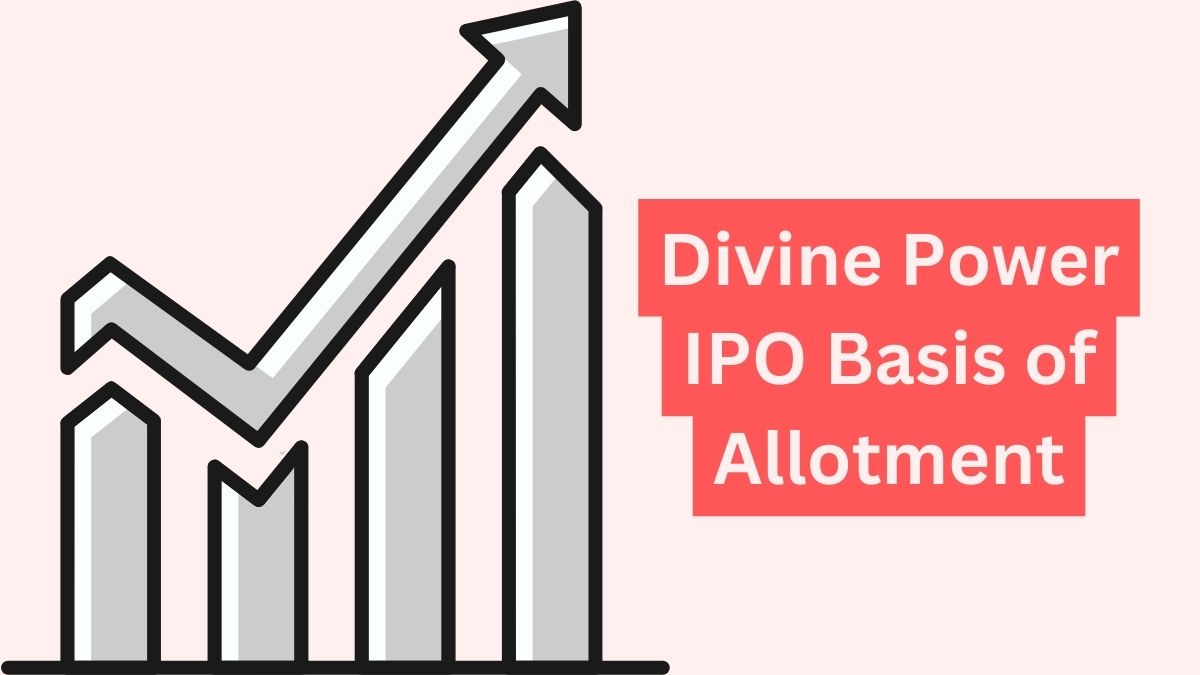
Divine Power, a frontrunner in the renewable energy industry, has captured the attention of the financial world with its announcement of an initial public offering (IPO). This move is not just a testament to its growth but also an invitation for investors to partake in its future.
This article provides a thorough look into the IPO’s structure, particularly focusing on how shares are allotted, a key aspect for anyone considering an investment.
What is the IPO Basis of Allotment
The “basis of allotment” in an IPO refers to the method used to distribute shares among various applicants when an issue is oversubscribed. This process ensures a fair and equitable distribution of shares, taking into account the number of shares applied for and the total available shares.
For more information, visit the official website here.
Divine Power IPO: Key Figures and Dates
- Total Shares Offered: 10 million shares
- Price Range: $15 to $20 per share
- Application Date: July 1, 2024
- Allotment Date: July 15, 2024
- Listing Date: July 22, 2024
Details of the Allotment Process
For the Divine Power IPO, the shares were distributed across three main categories:
- 50% to Qualified Institutional Buyers (QIBs): Banks, mutual funds, and insurance companies.
- 35% to Non-Institutional Investors (NIIs): Corporate bodies or individuals investing more than $10,000.
- 15% to Retail Investors: General public applicants.
Each category received shares based on pre-determined ratios, ensuring a balanced approach that accommodates both large and small investors.
Subscription Details
The IPO witnessed robust subscription rates:
- QIBs: Subscribed 150%
- NIIs: Subscribed 200%
- Retail Investors: Subscribed 120%
The high subscription rates reflect strong market confidence and demand for Divine Power’s shares.
Expected Outcomes Post Allotment
Market analysts predict a positive response to the allotment with potential short-term gains for early investors. Long-term expectations hinge on the company’s continued innovation and market expansion in the renewable energy sector.
Related Articles
- Dr Agarwal’s Health Care IPO Opens for Subscription: Should You Invest?
- CapitalNumbers Infotech IPO Debuts at ₹274: Key Details & Performance
- GB Logistics Commerce IPO Opens: Key Details, GMP, and Subscription Status Explained
- Stallion India Fluorochemicals IPO Allotment Status: Steps to Check Online and Latest GMP
- Laxmi Dental IPO Listing Today: What Investors Need to Know
People May Ask
What does “oversubscribed” mean in an IPO?
Oversubscribed means that the demand for shares exceeds the supply available in the IPO.
Can I sell my shares immediately after they are allotted?
Yes, once the shares are listed on the exchange, investors are free to sell their shares.
How is the IPO price range determined?
The price range is typically based on a valuation of the company, market conditions, and investor interest.
What risks are involved with investing in an IPO?
IPO investments can be risky due to market volatility and uncertainty about the company’s future performance.
How can I apply for an IPO?
Investors can apply through their brokerage accounts using the ASBA (Applications Supported by Blocked Amount) facility.
Conclusion
The Divine Power IPO stands as a significant event in the renewable energy sector, with the basis of allotment playing a key role in determining investor participation. As the company strides towards a sustainable future, its stock market debut is poised to be a pivotal moment for both the company and its investors.

